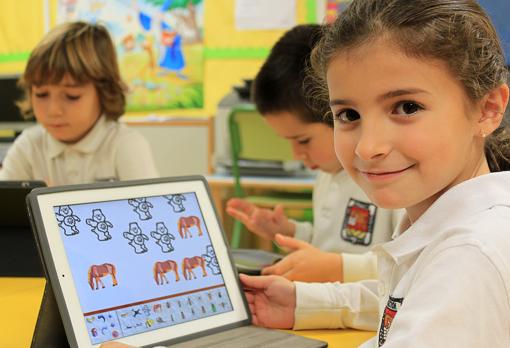
Como educadores, uno de nuestros principales objetivos debe ser motivar a los niños a crear un mundo digital mejor ante el crecimiento desenfrenado de la comunicación online. Los siguientes consejos de National Online Safety son para que los adultos sepamos fomentar los comportamientos positivos y buenos modales entre los jóvenes para que eviten conflictos y se desenvuelvan en el mundo digital.
- Las interacciones en persona incluyen mucho lenguaje no verbal que no forma parte de las interacciones online. Es importante que los jóvenes entiendan que esto puede provocar malentendidos.
- Un momento de pausa y reflexión puede ayudar a evitar una respuesta rápida que no contemple las consecuencias. La regla de oro puede ser: ¿Diría lo mismo si esta persona estuviera delante de mí?
- Es importante que los jóvenes entiendan que internet es adictivo: los algoritmos de las aplicaciones y las notificaciones en nuestros dispositivos enganchan incluso a los adultos. Por ello, acuerde con su hijo desactivar las notificaciones y establecer horarios de uso.
- Recuerde a su hijo que recibir un comentario negativo u ofensivo delante de los demás es muy doloroso, por lo que es importante pensar antes si es mejor enviar un mensaje en privado y no decirlo públicamente.
- Del mismo modo, difundir cotilleos o rumores puede resultar muy dañino. Además, si es online, no se ve el sufrimiento de la persona afectada. Hay que enseñar a los jóvenes a visualizar las consecuencias y a empatizar con las personas.
- Los adultos tenemos que comprender que los jóvenes pueden ser más sensibles emocionalmente por lo que debemos tener paciencia y escucharlos cuando se sienten mal por algo que ha sucedido.
- Practicar deporte o tener otros hobbies, en los que relajarse, desarrollar amistades en persona y apartarse del mundo digital, ayudará a los jóvenes a sobrellevar la ansiedad que pueden generar las redes sociales.
- En el entorno digital no todo es negativo: permite a las personas comunicarse y ayudarse mutuamente. Muestre a su hijo ejemplos de estos comportamientos “prosociales” y anímelo a ponerlos en práctica.
- Tenemos que ser modelos de conducta positiva, reservando ratos para comunicarse con la familia y pasar tiempo juntos sin la distracción de los dispositivos.
- Hay que recordar a los jóvenes que deben mostrar compasión: cometer un error online tiene un efecto expansivo muy rápido y le puede pasar a cualquiera, incluso a nosotros mismos, que a veces nos equivocamos al aprender cómo funciona el mundo digital.
As educators, one of our principal aims should be to motivate young people to build a better digital world in the face of the unstoppable growth of online communication. The following advice from National Online Safety serves for adults to know how to promote positive behaviour and ‘netiquette’ (good manners online) in young people so that they can avoid conflict and cope well in the digital world.
- Interactions in person include a lot of nonverbal communication that isn’t possible online. It’s important for young people to understand that this may cause misunderstandings.
- A moment of pause to think about things can help avoid responding too quickly and without considering the consequences. A rule of thumb would be: Would I say the same thing if this person were right in front of me?
- It’s important for young people to understand that the internet is addictive: even adults can get drawn in by the algorithms of apps and the notifications on our devices. This is why it’s a good idea to agree with your child to turn off notifications and establish timetables for use.
- Remind your child that receiving a negative or offensive comment in front of others can be very upsetting, so it’s important to stop and think about whether it would be better to send a private message and not make a comment publicly.
- In the same way, spreading rumours can be very harmful. Also, if it’s online, you can’t see the distress this may cause for the affected person. We must teach young people to visualise possible consequences and empathise with others.
- As adults, we must understand that young people may be more sensitive on an emotional level, so we have to be patient with them and listen when they are upset about something that has happened.
- Practising sport or other hobbies where young people can relax, make friendships in person and spend time away from technology will help them to better manage the anxiety that social media can provoke.
- Not everything online is negative: it does allow people to communicate and help one another. Show your child examples of positive online interactions and encourage them to put them into practice.
- We have to be models of positive behaviour, setting aside time to communicate with the family and spend time together without the distraction of mobile devices.
- Remind young people that they should forgive and forget: making a mistake online has an immediate expansive effect and can happen to anyone, even to us, who sometimes make mistakes whilst trying to learn how the digital world works.











Leave a Reply